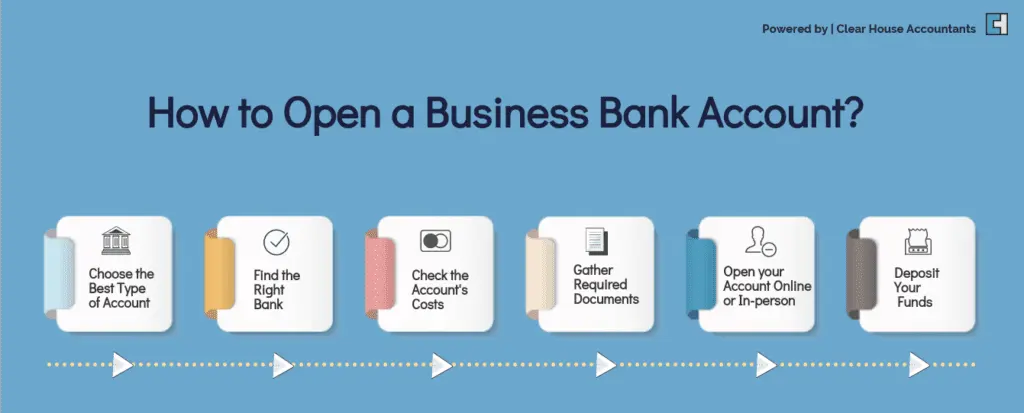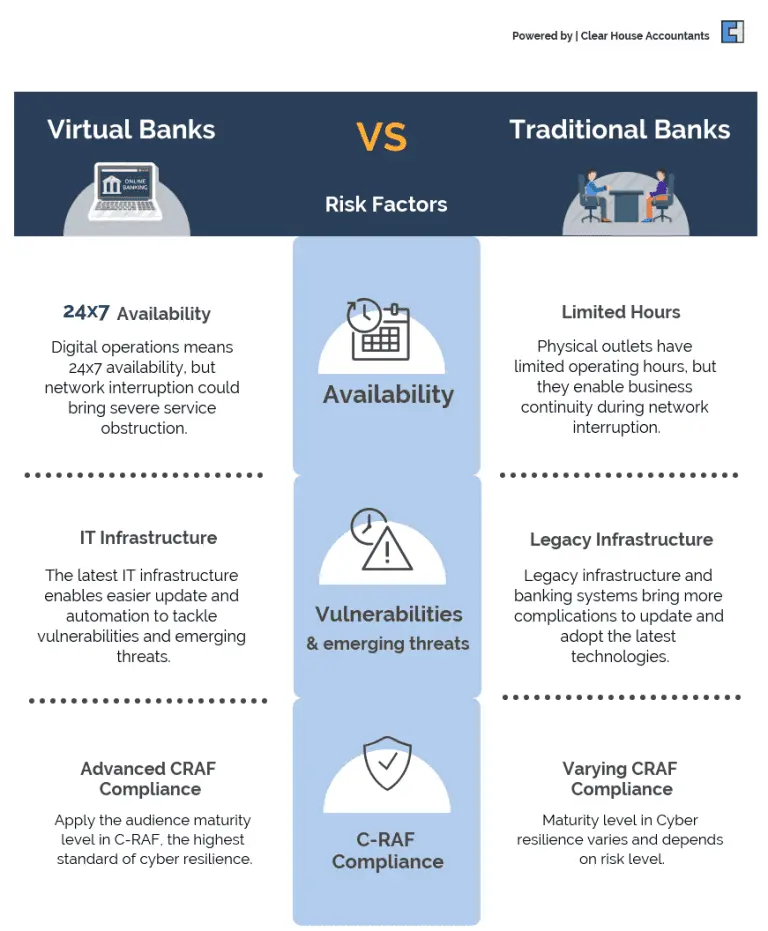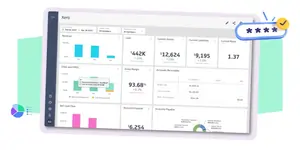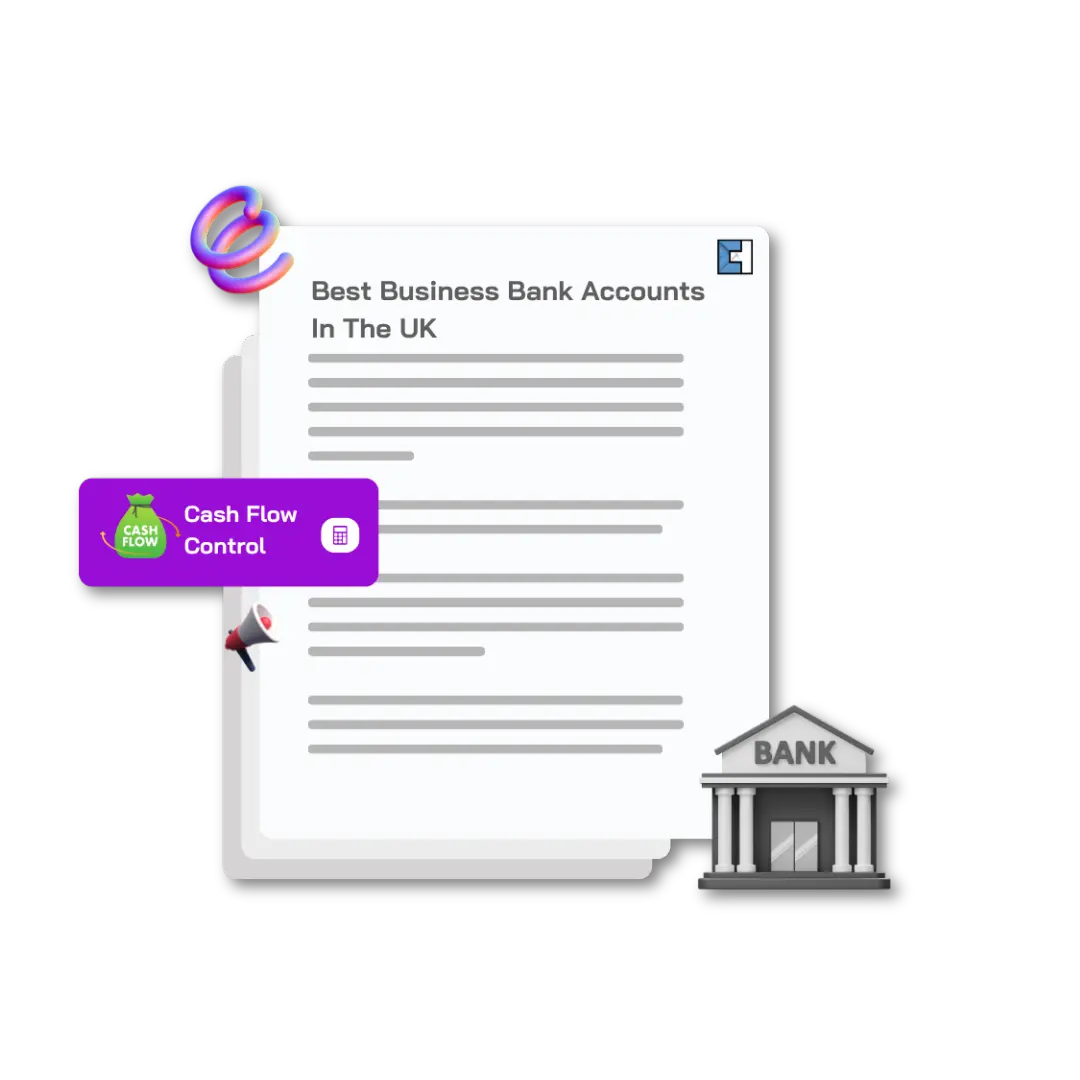Starting a new business in the UK entails several significant steps, including opening a business bank account. Opening a business account in the UK is a crucial step for any entrepreneur, freelancer, or company director to maintain separate personal and business finances. Notably, a startup business bank account greatly helps simplify bookkeeping and tax reporting for a business.
More crucially, as more entrepreneurs are moving towards digital solutions, selecting the right business bank account (based on different factors) is imperative for smoother financial management and compliance with regulations.
Accordingly, this guide will highlight the best business bank accounts in the UK, based on cost, features, and services, to help business owners make an informed choice for their business transactions.
What Is A Business Bank Account?
A business bank account is a bank account that business owners specifically use for managing their business transactions separately from their personal finances.
Business bank accounts are tremendously helpful for businesses to manage their cash flow effectively (both incoming and outgoing money), simplify bookkeeping and accounting processes, report taxes easily, and stay compliant.
Generally, a business bank account works similarly to a personal bank account, except that business account holders can access specific services that are usually unavailable to individual account holders. For instance, a business bank account holder can:
- Carry out transactions in foreign currencies
- Carry out credit checks on other businesses and suppliers
- Process salary payments
- Open the account in the name of the business. As a result, the transactions can be made using the business’s name instead of its holder
Importantly, business owners should remain aware that different banks offer different charges for accounts based on the features, services, and the provider they select. Thus, the individuals should make a careful comparison of bank accounts across providers before choosing one.
Does Every Business Need A Business Bank Account?
Business bank accounts are typically available to different business structures, including sole traders, limited companies, and partnerships. However, not every business structure requires a business bank account.
To clarify, it is not a legal requirement for sole traders and partnerships to have a dedicated business account. Instead, these structures can use a personal bank account to manage their business’s finances.
However, a limited company director in the UK is required to set up a business bank account for their company. A limited company is a separate legal entity from its business owners and is financially independent of them.
Benefits Of Setting Up A Business Bank Account
While it is not necessary for sole traders and partnerships, opening up a business bank account can be of great advantage to them. For instance, a business bank account allows businesses to:
- Receive customer payments
- Pay employees and suppliers
- Track income and expenses
- Build a credible and professional image for the business

Why Should Businesses Choose A Digital Bank Account Over A Traditional One?
The following image draws a comparison between online business bank accounts and personal bank accounts to highlight how business bank accounts facilitate entrepreneurs:

Why Is It Important To Open A Separate Business Bank Account?
The following reasons illustrate why opening a bank account holds immense significance for a business:
Separation Of Personal And Business Finances
To ensure effective cash management, every business owner should maintain a separate business bank account from their personal account. With a business bank account, they can keep track of business expenses without mixing them with personal expenses. Notably, combining these two can result in additional work for their accountants, which in turn leads to extra costs. Furthermore, when business and personal current accounts are not separate, it can result in scrutiny of their personal finances if HMRC investigates the business. In contrast, a separate business account simplifies accounting, bookkeeping, and tax reporting for the accountants.
Exclusive Banking Services For Businesses
An online bank account provides a business with access to tailored services, designed to meet the distinct needs of the business, including overdraft facilities, cash flow management, payroll management, and integration with accounting software.
Liability Protection
A dedicated business bank account helps safeguard an entrepreneur’s personal assets by keeping them separate from their business funds in case they face legal disputes.
Regulatory Compliance
Accounts often include account statements and transaction tracking, which ensures financial compliance for businesses in addition to simplifying the auditing process for authorities.
Growth And Scalability
When a small business starts trading, it may only require basic financial solutions and banking facilities, as its operations are limited at the outset. However, as it expands, it may need to hire employees, handle larger transactions, or seek investment. As a result, its financial setup also grows. Here, opening a business bank account provides a foundation for growth since it:
- Keeps finances organised and separate from personal money.
- Provides clear records that a business might need for loans, investors, or audits.
- Supports integrations with accounting and payroll systems.
- Builds credibility with business lenders and partners.
How To Open A Business Bank Account In The UK?
The following video and image explain the steps for opening a business bank account in the UK.
Exploring The Best Business Accounts In The UK
The best business accounts for small businesses and startups in the UK can be split into the following categories based on the preferences of a company:
For Digital-First And Low-Cost Banking:
Digital-only banks offer their banking services via an application platform. The applications can be accessed through smartphones or the web. Digital banks do not have physical branches or locations from which they operate. They provide their banking facilities through real-time updates and automated processes. These banks also offer customer support through various built-in features within their application platform.
Moreover, digital-only banks are a great way to deal with your financial transactions virtually. With the freelance industry booming, millennials find it highly suitable to open digital bank accounts to manage their payment obligations.
More crucially, digital-only banks have certain features that distinguish them from traditional banks. These include:
- 24/7 customer support.
- Cardholders have the flexibility to freeze/unfreeze their cards.
- Virtual Bank Cards.
- Real-time transactions view.
- Categorisation and reports on transaction spending
- Updates are provided via real-time notifications.
Notably, the small businesses looking for cost-effective yet digitally driven choices can consider the following bank options:
Starling Bank:
Starling Bank offers features like:
No monthly fees or UK payment charges
Businesses can set up a Starling bank account for free. Sole traders can get it only with its most basic package. Nevertheless, users can personalise their package with add-ons.
Low Interest Rates
Overdraft interest rates of 15%, 25% and 35% EAR (variable) based on the customer’s credit score.
Spending Analytics
Opening a business bank account with Starling will give small business owners essential spending analytics, allowing them to manage their money better. It is usually observed that many small business owners sign up for baseless subscription-based services and then entirely forget about them. However, Starling can help them eliminate unnecessary spending, which is the best approach to save cash.
Accounting Software Integration
Starling Banking integrates with other accounting software, like FreeAgent & Xero. Subsequently, businesses and accountants can easily comprehend what is going on with the business’s finances.
Fast Support
Fast responses and help from real humans through phone, email, or app.
A Fully Regulated UK Bank Account
Businesses’ money remains covered up to £85,000 by the Financial Services Compensation Scheme.
Easy Switching
Starling also offers easy switching by transferring all business banking services through the Current Account Switch Service.
No extra fee
No additional fee on top of the interest an account holder pays.
Important Considerations
The business owners must take into account the following aspects in order to open a business bank account with Starling:
- You must be a UK resident to open this business account.
- Sole Traders can avail themselves of exclusive Soletrader accounts if they have a Starling Current Account.
Monzo:
Monzo Banking offers three different types of business accounts (Lite, Pro, and Team) to cater to its customers. However, the most popular one is the Monzo Business Lite account, which offers:
- Seamless accounting through receipt uploads
- Mobile and web access.
- 24/7 customer support.
- Free, instant UK bank transfers.
- International transfers.
- Money management pots.
- AER: 1.40%
Customers can figure out the details of other business account plans to learn what suits their business requirements the most.
Important Considerations:
The customer must fulfil the following conditions in order to be eligible for a business bank account with Monzo:
- Monzo’s banking services are specifically for UK residents, including their business accounts.
- Only sole traders or limited company directors in the UK can apply.
Thus, Monzo might be the best business bank account for sole traders looking to streamline their business’s incoming and outgoing transactions.
Tide:
Tide can be the best current account for small businesses and many startups. Particularly, sole traders, freelancers, and micro-businesses can greatly benefit from Tide Banking on account of its following features:
- Fast digital-first account opening.
- User-friendly app-based banking.
- Integration with accounting software such as Xero, Sage, QuickBooks, and FreeAgent
- Integrated financial tools like invoicing and expense management.
- No account fee (£0 /month)
- FSCS-protected, e.g., The Financial Services Compensation Scheme protects up to £85,000.
- Tide business card.
- Auto-categorisation of income and spending.
- Hassle-free switching.
Importantly, Tide has four plans for business accounts. The free plan can be an excellent choice for startups. Plus, Tide offers up to 4% Annual Equivalent Rate (AER) on their Instant Saver business savings account.
Important Considerations
In order to open a business account with Tide,
- The individual needs to be above 18.
- They must be running a UK-based business.
For International Payments:
The businesses that primarily deal with international transactions should turn to the following business bank account options:
Revolt Business
For startups and SMEs looking for a flexible, digital-first platform for global transactions, choosing a Revolut Business account is hugely beneficial for them since it supports money transfer in 30+ currencies at the interbank rate to over 150 destinations globally.
Revolut features include:
- Competitive interbank exchange rates.
- Various international transfer methods, including SWIFT and SEPA.
- Accept payments online or in person.
- Real-time tracking.
- Integrated payroll and expense management add-on features.
- Payment of salaries, taxes, and suppliers directly from the account.
- Integration with accounting software such as Xero, Sage, and QuickBooks.
Moreover, in accordance with their business’s size and types, Revolut Business customers in the UK can reap benefits from four different Revolut Business plans, each of which has its own features and fees. These plans are:
- Basic (From £10/month)
- Grow (From £30/month)
- Scale (From £90/month)
- Enterprise (Custom)
Important Considerations
A Revolut business account is opened and managed entirely online, using either the Revolut Business app or the online web platform.
There are cash withdrawal fees. For instance, every ATM withdrawal incurs a 2% fee based on the total amount withdrawn. This fee is charged irrespective of the amount or the Revolut Business plan.
Further, it is significant to highlight that while a number of legal business structures can apply for a Revolut Business account, there are some structures that cannot apply for this business account. These exceptions include charities, public sector companies, cooperatives, and more. To elaborate, supported business structures for the Revolut business account include:
- Private Limited Company.
- Public Limited Company.
- Limited Liability Partnership.
- Limited Partnership.
- Partnership.
On the other hand, the unsupported or incompatible business structures are:
- Public sector.
- Charity.
- Private foundation or trust.
- Cooperative.
- Freelancer or sole trader.
Wise:
Wise is not a bank, but it is licensed as an e-money Institution in the UK and is regulated by the Financial Conduct Authority (FCA), similar to other banks.
The Wise Business account is specifically designed for businesses whose operations span globally. As a result, businesses can secure multi-currency accounts and cards by setting up an account with Wise Business.
Helpfully, opening a Wise Business account is not a gruelling task and can be done entirely online or in-app. The business owners will need to register with some personal and business information, set up security, and upload some documents for the purpose of verification.
Moving ahead, the following are features of the Wise Business account:
- The customer can retain and exchange 40+ currencies in one viable online account.
- Send payments to 150+ countries for low fees and the mid-market exchange rate
- Get local account information to be paid in 8+ currencies like a local.
- There are no monthly fees or minimum balance requirements
- Debit and expense cards for the customer and team.
- There are no hidden fees or exchange rate markups.
- Team members have multi-user access, and they can control and manage permissions.
- Pay up to 1,000 people simultaneously with the Wise batch payments feature.
- Integrated cloud accounting solutions, such as Xero and QuickBooks.
Find out more about Wise business pricing for each feature.
Important considerations:
- Both UK residents and non-UK-based residents can apply for a Wise Business account. Nevertheless, their eligibility will depend on their country of residence, their business structure, and the regulatory requirements for the account they are applying for.
- Business structures, including sole traders, freelancers, and limited companies, can apply for a Wise business account.
For Traditional High Street Support:
High street banks are traditional, large-scale retail banks having extensive networks of physical branches in the UK. These banks offer a wide range of financial solutions for individuals and small businesses, including current accounts, savings, loans, mortgages, and investment services. The following are a few examples of high street banks in the UK:
HSBC
HSBC offers three different business bank accounts to serve businesses of different sizes, such as:
- Startups and small businesses can apply for a Small Business Banking Account.
- Established businesses can apply for a Business Banking Account.
- Mobile first business account can apply for an HSBC Kinetic Current Account.
Furthermore, the HSBC small business bank account offers the following features:
- Borrowing solutions of up to £100k.
- No monthly account fee.
- Free UK digital banking.
- Suitable for all legal entities.
- Access for Desktop and mobile app.
- Multi-user account access.
- Customer support from business experts online or in person
- Free accounting solutions.
Important Considerations:
- Only UK tax residents can apply for an HSBC small business banking account.
- The following table shows some of the main charges for the Small Business Banking Account:
| Payments | Charges |
| Monthly account fee Free | Free |
| Standard domestic digital transactions (when made through Business Internet Banking) | Free |
| Debit card payment | Free |
| Branch or Post Office credit or withdrawal | £1.50 per credit or withdrawal |
| Cash deposit in branch or Post Office | 1.50% of the value deposited or withdrawn |
| Cheque deposit in branch or Post Office | 50p per cheque |
Barclays
Barclays is one of the UK’s biggest high street banks, which offers several business bank accounts that cater to different stages of business, from startups to established companies.
At present, Barclays offers three main types of business accounts in accordance with the business type:
- Startup business account
- Business account for an established business, whose annual turnover exceeds £400,000
- Charity and impact account for non-profit organisations.
Significantly, the Barclays startup account can be considered the best business bank account for startups that have been trading for over 12 months. This account aims to simplify the borrowing and payment solutions for the newly established businesses. The sole traders or directors of a limited company can apply for a Startup business account online or in the Barclays app.
This business account comes with the following features:
- Barclays banking app.
- Business debit and credit cards.
- Access to the Barclays Eagle Labs community hub.
- Free invoicing and accounting software from FreshBooks.
- Simple digital banking.
- Round-the-clock business support.
Important Considerations
- There are no monthly account fees for the first 12 months. However, following that, the fee of £8.50 will be charged every month after that with one simple tariff.
- Notably, the businesses with existing Barclays business accounts are ineligible for this offer.
NatWest:
NatWest is another high street bank that offers a business bank account aimed at specifically meeting the needs of emerging businesses. NatWest Startup business bank account offers considerable advantages and support to new businesses when it comes to managing money, receiving payments, and paying bills.
Importantly, the Startup business account is available for businesses that have been trading for less than 1 year and have a turnover of less than £1 million.
NatWest key features include:
- For the first 2 years, customers enjoy free banking on everyday transactions.
- Free FreeAgent accounting software to ensure MTD (Making Tax Digital) compliance.
- Customers can bank from anywhere via Online Banking, the NatWest mobile app, or their network of branches.
- Instant payment notifications.
- In-app cheque deposit (limits and fees may apply).
- Multi-director access, allowing the eligible directors to see all accounts and spending.
Important Considerations
- In order to apply for a NatWest startup business account, the customer must be aged 18 or over.
- They must be the owner or director of the UK-registered business they are applying on behalf of. At least one person on the application must be a UK resident.
- The business must also have a turnover of less than £1 million and be in operation for a year or less.
For Startups And Small Businesses
While all the above-discussed banks have business accounts to facilitate startups and small businesses, Anna Money tops them all.
ANNA Money:
ANNA stands for Absolutely No Nonsense Admin, which offers an app-based business account particularly aimed at small businesses and startups.
Anna’s mobile-first business bank account was specifically created for small businesses, sole traders, and freelancers in mind to provide a mobile banking solution to manage their finances. It is because Anna itself is a startup.
It is worth mentioning here that most banks look at a large first payment into a new account as suspicious, particularly if it is a lump sum from an investor.
Consequently, it is not appealing for founders when their funds are frozen, and they are unable to access their money.
On the contrary, Anna’s team swiftly reviews the incoming transactions so that the legitimate payments can get released without unnecessary delay.
Further down the line, Anna has different plans, including a free Pay-As-You-Go Basic account. It has £0 monthly fees. It means the customer will only pay for what they use.
Who Can Apply?
Eligible customers who can apply for an Anna business bank account for a startup include sole traders, directors of a limited company, and partners of a Limited Liability Partnership.
Importantly, apart from opening a business bank account, several crucial steps are involved in starting a business in the UK, whether for residents or non-residents. Business owners must understand the essentials that can help them lay the foundation for a venture that will ultimately reach fruition. Fortunately, the following guides enlist all the steps and the business models that can enable an entrepreneur to take all the correct steps to ensure their business success:
How To Choose The Best Small Business Bank Account In The UK?
A small business owner must consider the following factors when deciding which is the best business bank account for a small business in the UK:
Business Needs
The owner must consider their business needs to select the correct bank account. For instance:
- The business size and current banking activity.
- Frequency of deposits and withdrawals. From the current account.
- If the business receives payments regularly.
Fees And Charges Associated With The Account
It is essential to note that different banks charge varying fees for business bank accounts. Thus, it is advisable that business owners compare the monthly fees, as well as any fees for transactions, cash, or ATM withdrawals. It will ensure they get the right account and features at a reasonable price.
Assess The Minimum Balance Condition /Policy
Some banks require a minimum balance to maintain a business bank account. It means the individuals become obligated to always keep a certain amount of money in their small business current account. Consequently, if the balance drops below that certain amount, the bank may charge them extra fees.
If the situation is such, it is essential that business owners select a business bank account that aligns with their cash flow management and watch out for minimum balance rules to avoid unnecessary charges.
Do you know what information is required for setting up a business bank account?
Download the checklist prepared by experts to determine the necessary documents needed for opening a business bank account.

Conclusion:
A business bank account in the UK is not just a place to store money. In fact, it is an essential step that businesses must follow when starting a new business in the UK. Selecting the best business current account supports cash flow, simplifies tax reporting, and gives owners the confidence to focus on building their company, whether they are just starting or scaling up.
However, as a business owner, you may struggle to decide which bank account to select. In this regard, a certified startup accountant can significantly assist you in choosing the best account, as we have a thorough understanding of various bank structures, their associated fees, transaction limits, and integrations with accounting software.
Additional Resources:










































































